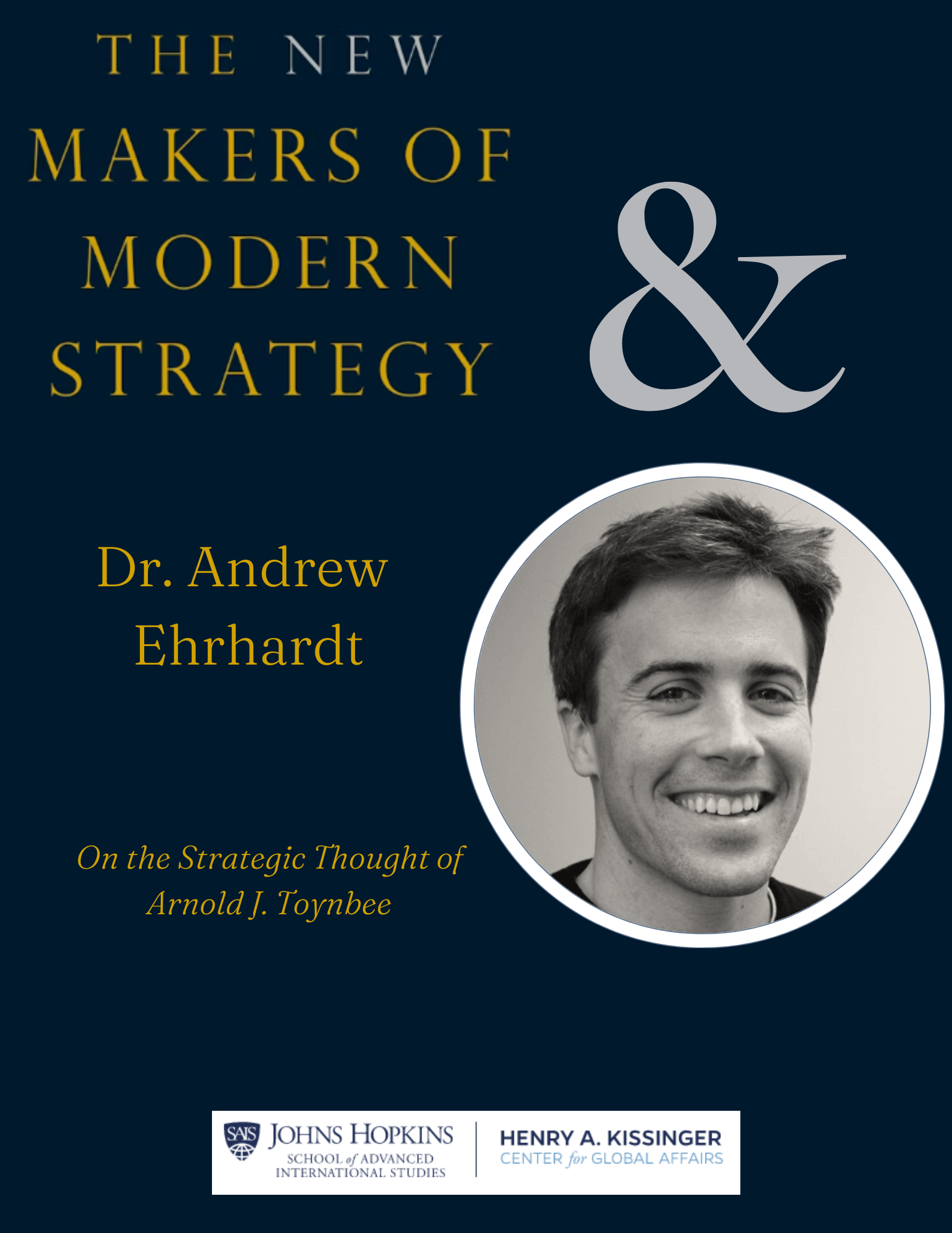New Makers of Modern Strategy Contributor Spotlight: Dr. Andrew Ehrhardt

Our chapter focuses on the strategic thought of Arnold J. Toynbee, one of the most renowned historians of the twentieth century. Known throughout the world for his twelve-volume A Study of History, Toynbee was also a leading analyst and commentator on international affairs during the interwar period. During the Second World War, he led a group of academics who produced detailed research and policy recommendations for government officials. Toynbee himself was even brought in as a leading advisor to a Cabinet committee responsible for outlining British war aims. He was, in many ways, one of the great embodiments of what scholars today refer to as ‘Applied History’ – that is, bringing historical study closer to the practice of contemporary politics.
It coloured his perception of the future of Western Civilization and Britain’s purpose and agency therein.
Given his proximity to the policymaking process, John Bew and I thought that a proper analysis of his strategic thought was necessary. What we found during our research – which involved pouring over Toynbee’s writing and correspondence from the 1910s through the 1940s – was that his thinking on British national strategy and the future of international order was shaped to a great degree by his approach to historical study. Toynbee’s interest in studying civilizations over millennia – including their genesis, rise, decline, and disintegration – led him to appreciate more than most the larger economic, political, technical, moral, and even spiritual phenomena which had been working themselves out over centuries. It coloured his perception of the future of Western Civilization and Britain’s purpose and agency therein.
Such a mode of historical thinking, even in the era in which Toynbee was working, tends to be seen as too abstract to be useful. Yet we argue that this kind of approach, one which involves philosophic reflection and is rooted in historical knowledge and experience, helps to form the intellectual, cultural, and ethical basis of grand strategic thinking down to the present day.
Such a mode of historical thinking, even in the era in which Toynbee was working, tends to be seen as too abstract to be useful. Yet we argue that this kind of approach, one which involves philosophic reflection and is rooted in historical knowledge and experience, helps to form the intellectual, cultural, and ethical basis of grand strategic thinking down to the present day.